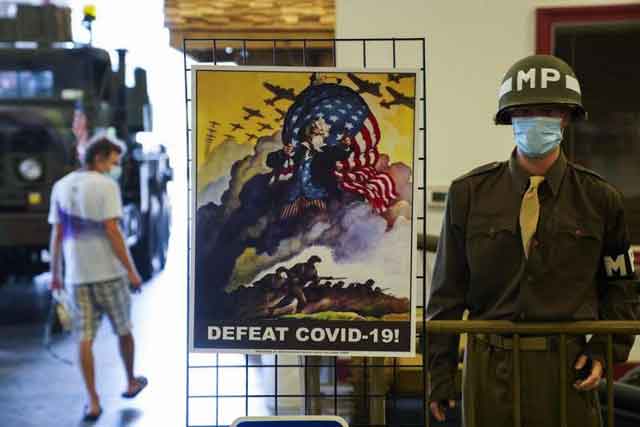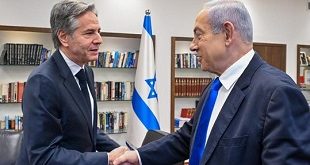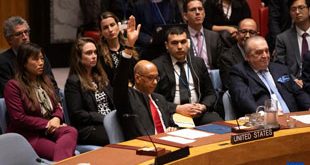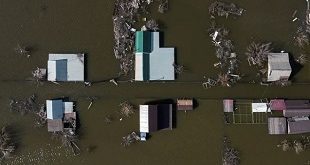
Kampala, Uganda | XINHUA | Formal events recognizing Japan’s surrender in World War II took place throughout Europe this weekend, but in America, celebrations were muted.
Still, U.S. vets spoke out, while pundits and historians looked ahead to a future with more international cooperation and detente.
“When word came that the Allies had won the war, the prisoners dropped to their knees and wept,” former POW Michael Hurst told NBC news Friday.
On local time Aug. 14, 1945 — 75 years ago — U.S. President Harry Truman announced to the country by radio that the once mighty Empire of Japan had agreed to unconditionally surrender.
In the United States, the event is officially celebrated on Sept. 2, although many states use the second Monday in August, which this year fell on Aug. 10. Other states, such as Arizona, celebrate V-J Day on Aug. 14 or Aug. 15, when Truman delivered his speech, according to a Friday article in local SignalsAZ newspaper.
The inconsistent date is one problem for the event’s lack of attention in the United States.
In addition, “there’s no return of veterans to the battlefields, as with D-Day celebrations in France. No gathering of national leaders,” NBC said Friday, nothing that “V-J Day, as the anniversary of the allied victory over Japan is called, receives far less attention than Victory in Europe, or VE Day, on May 8.”
Ironically, V-J Day actually represents the end of WWII, and the end of Japanese brutalization of Americans and Chinese alike.
Of the 27,465 Americans captured by the Japanese, 11,107 died, according to the National World War II Museum, as compared to only 1.2 percent of American POW’s held by the Nazi’s in Europe.
“We had people who lost their mind and went hysteric,” said Robert Rosenthal, now 98, who survived as a Japanese POW after being captured.
“It was a hellhole; people were dying left and right. The only duty was to bury 100 men a day,” he told NBC News Friday.
On Saturday, the official V-J Day in the United Kingdom, millions of citizens observed a two-minute silence, listened to a compelling memorial speech by Prince Charles, and an emotional, first-hand description of V-J Day by the Queen herself, honoring the 75th anniversary of Japan’s surrender.
That surrender triggered wild, jubilant celebrations across the globe, especially in America where an iconic photo went viral across the globe of a U.S. Navy sailor kissing a woman on Times Square in New York City.
Seemingly forgotten in these times was the intense cooperation and camaraderie forged between Chinese and American military leaders, well-documented by numerous historians.
The late historian John Yee, a former member of the legendary Flying Tigers in WWII, represented that connection as a lieutenant serving under the command of U.S. Gen. Claire Lee Chennault.
Yee, a Chinese-American and Denver history professor, passed last April. He was vocal in his demands for Japan to officially apologize for atrocities committed against Chinese civilians during the war, and even penned a personal letter to Japanese Prime Minister Shinzo Abe in 2015.
More than 30 million soldiers and civilians were killed in the Pacific theater during the war, compared with the 15 million-20 million killed in Europe, the National WWII Museum said.
And, most importantly, in the face of the COVID-19 pandemic, pundits wonder why the cooperation and detente that stopped a common enemy in 1945, cannot occur in 2020.
“We missed a golden opportunity to cooperate with the good people of China and in our shared struggle, bring our nations closer together,” said former Capitol Hill policy advisor David Richardson on Sunday.
“We live under a government that didn’t tell the truth to its people about the virus, and in fact blamed the virus on China,” he added.
Stewart King, a college history professor and U.S. State Department officer during the Reagan Administration, agreed with Richardson.
“U.S.-China cooperation on zoonotic viruses was quite effective, until the current administration pulled us out of the project about the time the SARS-CoV-2 virus was breaking out,” King told Xinhua.
“Hopefully, a new administration will be able to renew international scientific cooperation, and we can beat this one and the next one too,” he said Sunday.
“We are all hoping for cooperation between these two great countries in the future,” Richardson echoed.
****
XINHUA
 The Independent Uganda: You get the Truth we Pay the Price
The Independent Uganda: You get the Truth we Pay the Price


